Angela Merkel, who became a heavyweight politician in Europe and in the world, will not run for election after 16 years of leading. And neither political scientists nor average Germans could predict who will be the next head of the government. For several months most of the analytics forecasted the black-green coalition coming to power (the Christian Democratic Union of Germany (CDU) /the Christian Social Union (CSU) and Alliance 90/The Greens). But the closer the election is, the less predictable the results are becoming.
Electoral competition between parties
The ruling Union is losing its leadership positions (according to last polls only 22 per cent of respondents intend to give them a vote). The reputation of CDU/CSU was hardly damaged after the corruption scandal with masks supply. Parties haven’t managed to return the interest of voters with the electoral campaign and new program. But the main problem for Christian Democrats is the lack of power figures to replace Merkel. The party’s mistake was an election not so popular chairmen CDU Armin Laschet as a candidate for Chancellor.
Amid common concerns over climate changing in Germany, Alliance 90/The Greens have strengthened their position other the last years. Greens were leaders of the electoral race in May (26 per cent). But after the release of the program, mistakes of Chancellor candidate Annalena Baerbock failed the electoral campaign the political ranking of the party has dropped. Now only 15 per cent of respondents plan to vote for the Greens. Thus, the party maintained its traditional support but failed to extend it.
The success of the Social Democratic Party of Germany was a surprise for many analytics. Having spent long periods as a junior partner in the ruling coalition, SPD nearly lost its identity. Its support was on average about 14-16 per cent. But over a couple of months, the ranking of SPD rapidly increased to 25 per cent. The key to success for social democrats is a candidate for the Chancellor, a finance minister, a popular politician Olaf Scholz. Amid weakening Laschet and Baerbock, Scholz looks like only one candidate having the potential to be the replacement of Merkel.
The support of small parties – pro-small-business the Free Democratic Party and post-communist the Left - demonstrates fewer dynamics. FDP has strengthened its position on the level on average 11-12 per cent. The Left Party have not overcome the internal crisis and is teetering on the level 6-7 per cent.
Over 4 months rating of CDU/SCU, The Greens and SPD has changed for 8-10 per send and much will depend on the last week. But this unpredictability has its advantage. Despite Merkel's support, Germans got tired of the predictability of elections and the rule of a grand coalition that blurred the differences between the "people's parties". This led to support for extreme forces, especially the rise in popularity of the far-right Alternative for Germany. The citizens of the Federal Republic of Germany have now felt the importance of elections again. Therefore, while there is a serious struggle between the three main parties, there are no significant changes on the extreme flanks. Support for the AfG fluctuates between 10 and 12%.
Possible coalitions
Increasing numbers of parties (six) and decline of "people's parties" popularity conducted to the dispersal of support. It is mathematically impossible to form a bipartisan coalition. But coalition negotiation of 3 actors is usually very difficult.
It seems unlikely that one of the «people’s parties», CDU/CSU or SPD, could agree to become a junior partner in a future coalition, like red-black-green (SPD-CDU/SCU-Alliance 90/ The Greens) or black-red-yellow (CDU/SCU-SPD- FDP) and so forth.
The leftist coalition SPD-the Greens-the Left is mathematically possible but improbable. Post-communistic the Left is not ready to change their radical demands (State-control over crucial infrastructure, right for asylum for all, withdrawal from NATO, etc.) according to the “real politics”. Besides, there is a lot of contradiction between the Greens and the Left in the field of foreign policy. Greens constantly blame post-communists for “understanding non-democratic regimes” and anti-Americanism.
The most possible coalitions, for now, are black-green-yellow (CDU/CSU-the Green-FDP), leading by Laschet, and red-green-yellow (SPD-the Green-FDP) leading by Scholz. The Greens had probably already had exploratory talks with Christian Democrats. At the same time, according to electoral programs in the field of economic and social policies, they have more in common with SDP. The economic and fiscal program of FDP is theoretically closer to central-right CDU/CSU, but the chairman of Free Democrats Christian Lindner has already broken the negotiation about the black-green-yellow coalition 4 years ago.
Thus, FDP and the Greens returned to their role of “king-makers”. So, the main question Christian Democrats or Social Democrats will be successful negotiators. Although a major problem could be negotiation and developing a common agenda of the Green and FDP.
Influence of the election on the foreign policy
Regardless of election results, German foreign policy will not be undergoing a major change. Firstly, the foreign policy of Germany is generally stable and consistent. Secondly, because of coalition negotiation parties should always seek compromise. Thirdly, the positions on foreign policy issues of all parties (except for the Left and AfD) are close. All possible participants underline, that there is no alternative to transatlantic relations. It could be assumed that CDU/SCU will conduct more pro-American policy, for example, made a promise to increase military spending to 2 per cent of GDP, as required by NATO arrangement. But basically, both possible coalitions will balance between commitment to transatlantic partnership and German own interest (like an example of Nord Stream-2 and Sino-German economic ties).
We should not also expect Social Democrats to return to traditional ‘ostpolitik’, enhance cooperation with Russia. Both Laschet and Scholz are pragmatic politicians, they will collaborate with Moscow in mutual beneficial issues, but will not change German political commitment in such tough matters of relations as the Ukrainian crisis.
All parties are committed to strengthening European security cooperation. So such programs as PESCO, German-French development of Future combat air system and Main Ground Combat Systems will be continued. If Scholz becomes the next Chancellor, it could give greater impetus to the development of European cooperation on foreign policy and defense. SPD pays more attention to increasing integration in CFSP (Common Foreign and Security Policy) and the achievement of strategical autonomy in its electoral program. Also, Scholz, being a more experienced and influential politician, has a better chance to move forward in this sphere. Although, all central parties underline that NATO is the ultimate provider of security in Europe.
Dr. Maria Khorolskaya is a research fellow of the Department for European Political Studies, Primakov Institute of World Economy and International Relations (IMEMO), Russian Academy of Sciences


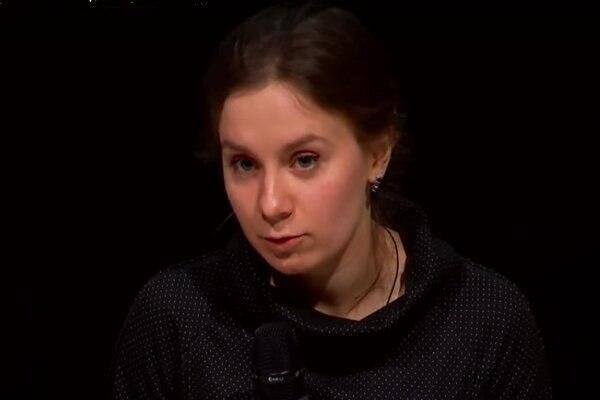

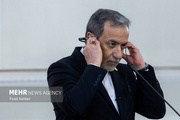
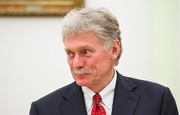
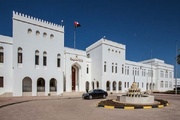

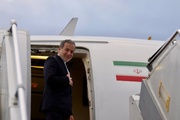
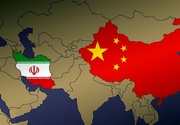
















Your Comment